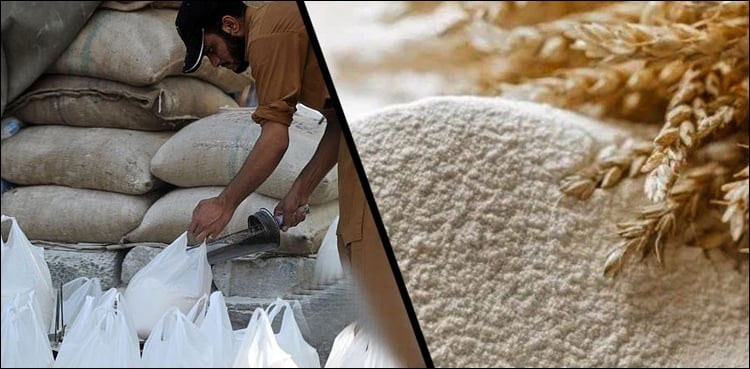Flour Prices Surge in Islamabad and Rawalpindi, Sparking Consumer Outcry
ISLAMABAD/RAWALPINDI, PAKISTAN – Flour prices in the twin cities of Islamabad and Rawalpindi have skyrocketed, with a 20kg bag now retailing at up to Rs 2,426.67, marking an increase of Rs 800 in recent weeks. The surge is attributed to supply chain disruptions, market deregulation, and alleged hoarding, exacerbating inflationary pressures on households .
📊 Key Price Increases
20kg Flour Bag:
Official Rate: Rs 1,810 (government-directed)
Market Price: Rs 2,400–2,426.67 .
Fine Flour:
80kg Sack: surged from Rs 7,000 to Rs 10,500 .
Regional Comparisons:
Rawalpindi and Quetta saw a Rs 740 increase per 20kg bag, while Islamabad recorded an Rs 800 hike .
🚨 Causes of the Crisis
Supply-Demand Gap:
National wheat stocks stand at 33.47 million tons against a demand of 33.58 million tons, leaving a 110,000-ton shortfall .
Monsoon Floods:
Recent floods in Punjab’s wheat-growing regions disrupted supply chains, damaging crops and infrastructure .
Market Deregulation and Hoarding:
Punjab’s withdrawal from wheat market regulation enabled stockists to hoard grain, creating artificial shortages .
Feed mills in Punjab hold 104,184 metric tons of wheat, diverting stocks meant for human consumption to poultry feed .
Global and Local Inflation:
Domestic wheat prices (Rs 96/kg) exceed global rates (Rs 85/kg), discouraging imports and incentivizing hoarding .
👥 Government Response
Punjab’s Ban on Wheat Diversion:
Imposed Section 144 to prohibit wheat use in feed mills for 30 days, ensuring supply for flour production .
Price Controls:
Directed retailers to sell 20kg bags at Rs 1,810, though enforcement remains weak amid market defiance .
Federal Assurance:
Food Security Minister Rana Tanveer Hussain claimed stocks are “adequate” and ruled out imports, despite public skepticism .
📈 Broader Impact
Inflation: Short-term inflation (Sensitive Price Index) rose 5.07% YoY, with flour prices up 25.41% weekly and 30.27% annually .
Regional Disparities:
Bannu and Peshawar faced the steepest hikes (Rs 1,050 per bag), while Karachi and Hyderabad saw increases of Rs 700–720 .
Consumer Burden: Low-income households face heightened food insecurity, with flour becoming “increasingly unaffordable” .
🔮 Outlook and Recommendations
Short-Term:
Release provincial wheat reserves to stabilize prices (e.g., Sindh’s planned release next week ).
Long-Term:
Reinstate market quotas and anti-hoarding measures to prevent speculation .
Invest in flood-resistant infrastructure and strategic grain reserves.
💎 Conclusion
The flour crisis in Islamabad and Rawalpindi reflects systemic issues in Pakistan’s agricultural governance, compounded by natural disasters and market manipulation. Immediate intervention is crucial to mitigate humanitarian impacts, while structural reforms are needed to ensure long-term food security.
For real-time updates, refer to the .
Sources:
Note: Pric







